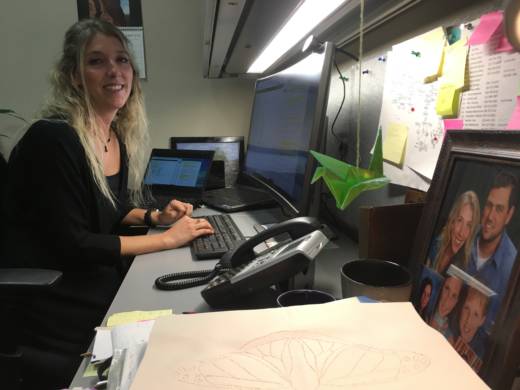When Holbrook heard that researchers at UC Davis were going to study this, she called to sign up. Researchers are still recruiting women who were pregnant during and after the wildfires last year to participate in a study of the health effects of the polluted air on them and their babies.
Studies of pregnant women exposed to traffic-related air pollution show an association with respiratory and developmental problems in their children, including autism.
“We thought, well this is that, amplified,” said Rebecca Schmidt, an environmental health professor who is running the wildfire study.
“Samples from the mom include maternal hair, maternal blood and saliva,” she says, and breast milk, if they reached the women while they were still breastfeeding. “And if we got them before delivery, placenta and their child’s umbilical cord blood.”
Other researchers at UC Davis are studying exactly what was in the air and ash produced from the fires. Schmidt’s team will then measure what chemicals the women were exposed to.
They are also studying long-term stress levels. The stress hormone cortisol marks the hair, and because hair grows one centimeter per month, Schmidt says they can measure how stressed women were during and after the fires.
“They were affected by these fires for months, because they were out of power or they had to relocate or their home was gone,” she says.
Researchers will look at the health problems this caused, but also what women might have done to mitigate the stress and smoke: running the AC, wearing air masks, evacuating the area or getting a lot of support from friends.
“We wanted to also just be reassuring that, ‘Hey, maybe there aren’t as many health consequences as we thought,’ ” she says.
That’s why people like Melissa Holbrook called last spring to sign up — to get some peace of mind that she and her son are OK. But she still hasn’t heard back yet.
“We had over 400 women contact us in that first week,” Schmidt explains. “So our staff was not quite geared up to handle all of them at once.”
It’s not too late to sign up, she adds. Women who want to participate can still enroll through the end of this month.
“Pretty much anyone who was in those areas at that time and who were pregnant during the fires or up to three months afterwards would be eligible,” she says. “We’re still wanting as many as we can get.”

